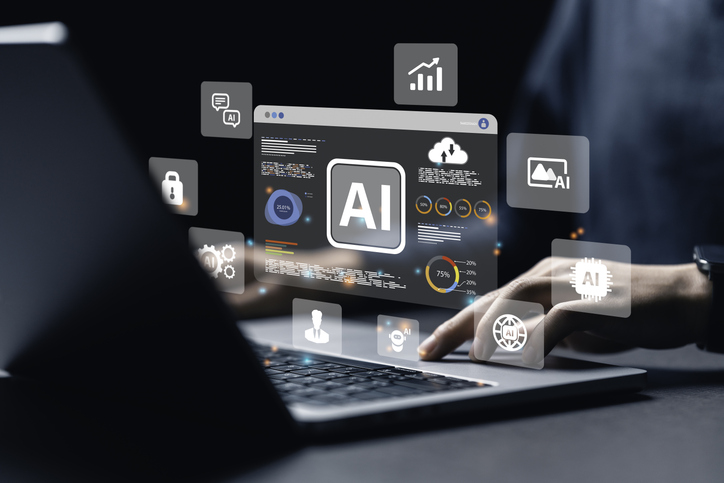In recent years, the integration of artificial intelligence (AI) into numerous aspects of business operations has become increasingly prevalent. From automating repetitive tasks to analyzing vast amounts of data, AI has begun to revolutionize industries, including finance, accounting, and tax management.
For controllers and chief financial officers (CFOs), the shift toward AI-powered tax management and audits poses both opportunities and challenges. With that in mind, this blog explores how these evolving technologies stand to impact your daily processes and what adjustments you may have to make to stay ahead of the curve.
The Role of Machine Learning and AI in Tax Management
It’s no secret that business tax management processes are complicated and tedious. You likely have an entire team of accounting professionals dedicated to tasks like:
- Data collection
- Analysis
- Compliance
- Addressing discrepancies
So where do machine learning and AI fit into these vital tasks? ML algorithms can sift through complex financial data with unprecedented speed and accuracy, identifying patterns, anomalies, and potential risks more efficiently than traditional methods.
Additionally, AI-powered tax filings can automate routine filings. At the same time, they work to minimize errors and reduce the burden on your team.
An area with one of the most significant impacts is tax audits. Machine learning algorithms can analyze huge sets of data to identify discrepancies or potential areas of non-compliance. In turn, your team can rectify any potential issues before they trigger an external audit from taxing authorities.
By integrating these cutting-edge technologies into your tax filing strategies, you’ll be able to insulate your organization from compliance threats and streamline the filing process. Additionally, you’ll enjoy significant time savings, which will free up you and your team to tackle other essential accounting processes.
How Modern Technologies Will Impact Tax Reform
The increased use of AI in tax management and audits has significant implications for future tax reforms. As AI technologies continue to evolve, policymakers may need to accommodate these advancements by adapting tax regulations.
For instance, federal regulators may clamp down on data privacy and security. This could ensure that sensitive financial information processed by AI systems remains protected.
Furthermore, the use of AI in tax audits may prompt lawmakers to revisit enforcement activities. As AI algorithms become more sophisticated at detecting potential tax evasion or fraud, authorities may need to develop new strategies for enforcement and compliance. These changes could include:
- Greater collaboration with technology experts
- The development of user-facing compliance tools
- Increased AI investments
Currently, we are still in the speculative stage of AI-driven tax reform. It is unclear just how fast the technology will evolve, how those enhancements will impact tax filing processes, and how regulators will respond.
In response, your organization must focus on agility and responsiveness. It’s imperative that you stay apprised of the latest federal and state rules regarding the use of artificial intelligence in tax filing processes.
What Challenges Will Your Organization Face in the Era of AI Tax Management?
If you are optimistic about the implications of artificial intelligence on tax reform, you have good reason to be. However, there are still plenty of challenges to overcome along the way.
One of the major hurdles involves ensuring the accuracy and reliability of AI-driven tax assessments. While machine learning algorithms can take in huge amounts of data, they may still be prone to errors or biases, particularly if they were trained on incomplete datasets.
You and your team must act by painstakingly working to ensure the accuracy of any AI-generated reports. Also, you should make sure to exercise caution when making decisions.
Additionally, the digital revolution has the potential to impact you and your team members. As these solutions automate routine tax tasks, there may be a shift in the skill sets required for tax professionals.
You should respond by investing in training programs to upskill your finance teams. It’s also crucial to ensure that they have the expertise to effectively leverage AI tools for tax management.
By being proactive about upskilling and talent optimization, you can minimize the risks of displacement. Don’t wait until these technologies have fundamentally changed tax management as we know it. Instead, start elevating your team’s abilities now.
Navigating the New Tax Landscape
Change can be both good for the organization and hard on employees. That will likely be true of artificial intelligence. As you step into the new world of tax management, it’s vital that you:
- Stay Informed: Keep up with all developments in AI technology and tax rules
- Collaborate: Work with tax authorities to ensure compliance and responsiveness
- Manage Risk: Reduce the possible threats related to AI-driven tax assessments
- Development Talent: Invest in your team early and often
The bottom line is that artificial intelligence is here to stay, and it’s evolving at a lightning-fast pace. Now, you’ve got to adapt. Revamp your tax management strategies to capitalize on the opportunities and mitigate the challenges this technology presents. By doing so, you’ll position your business to thrive in the face of AI.
Additional Tax and AI Resources
Best Practices for Streamlining Corporate Tax Compliance




